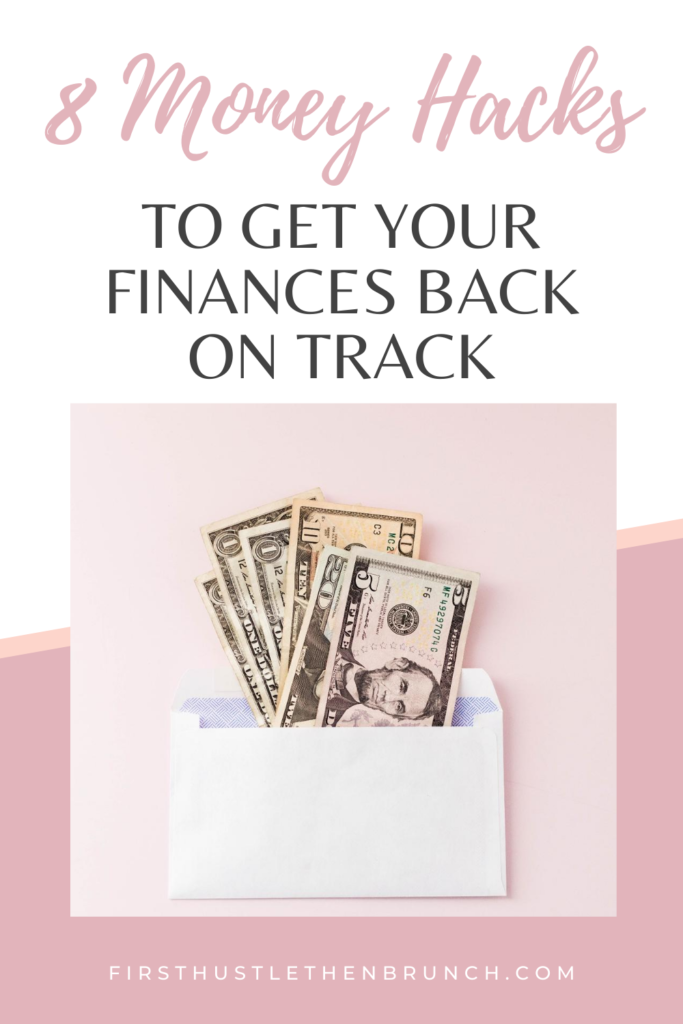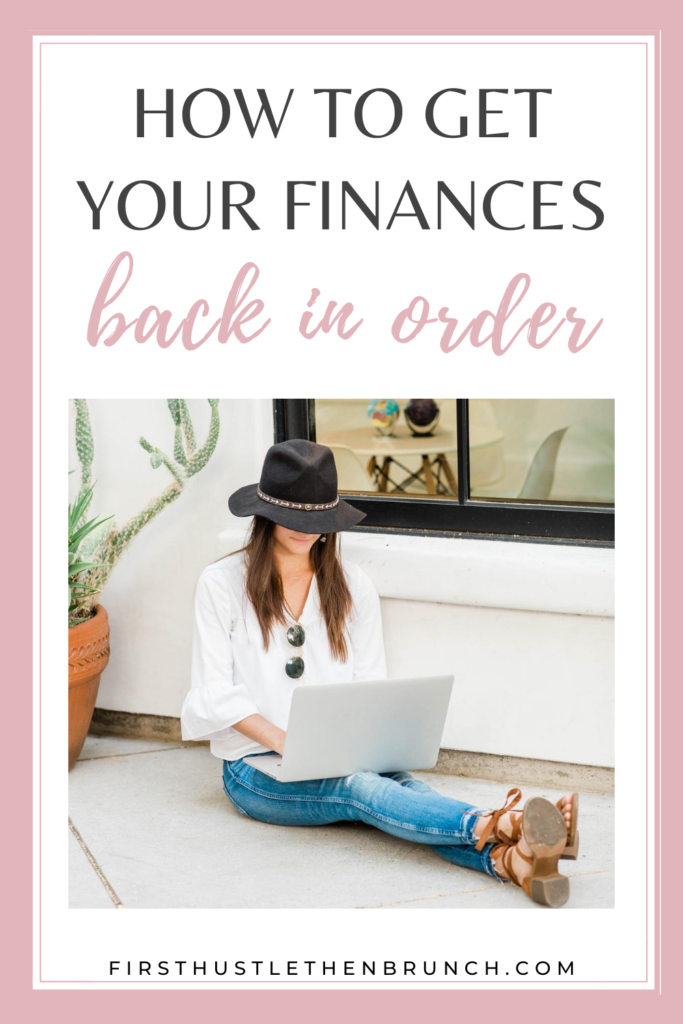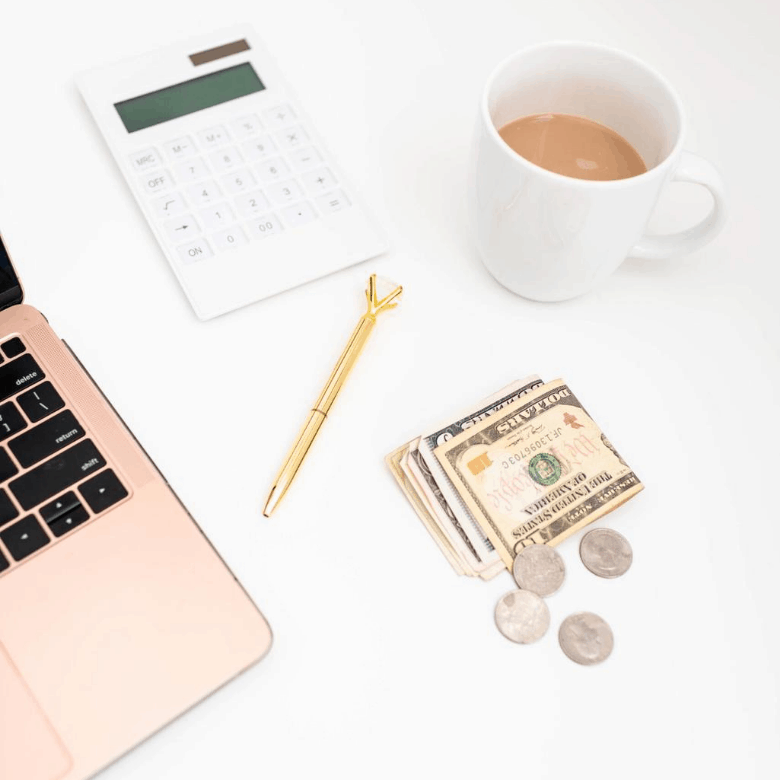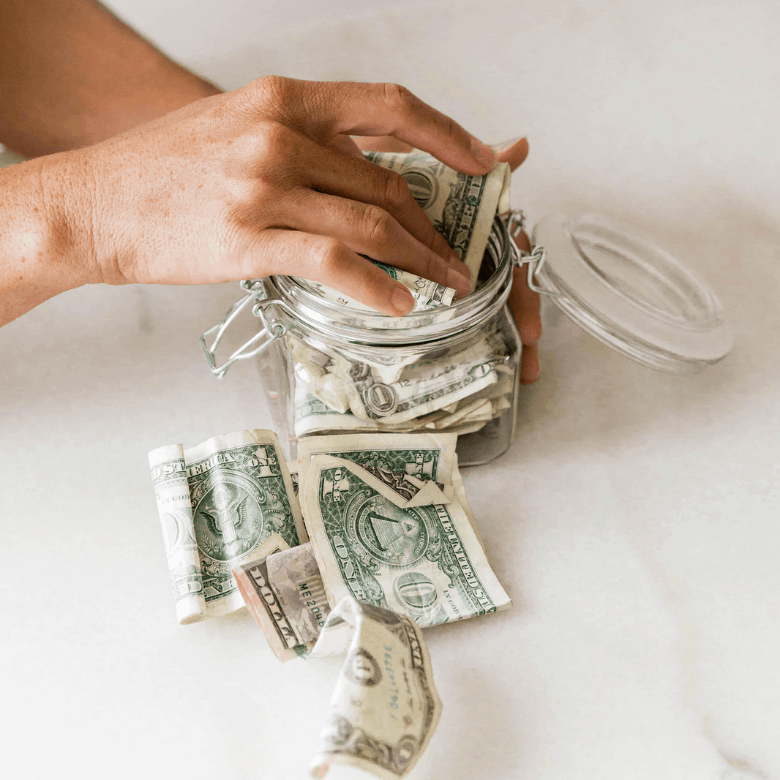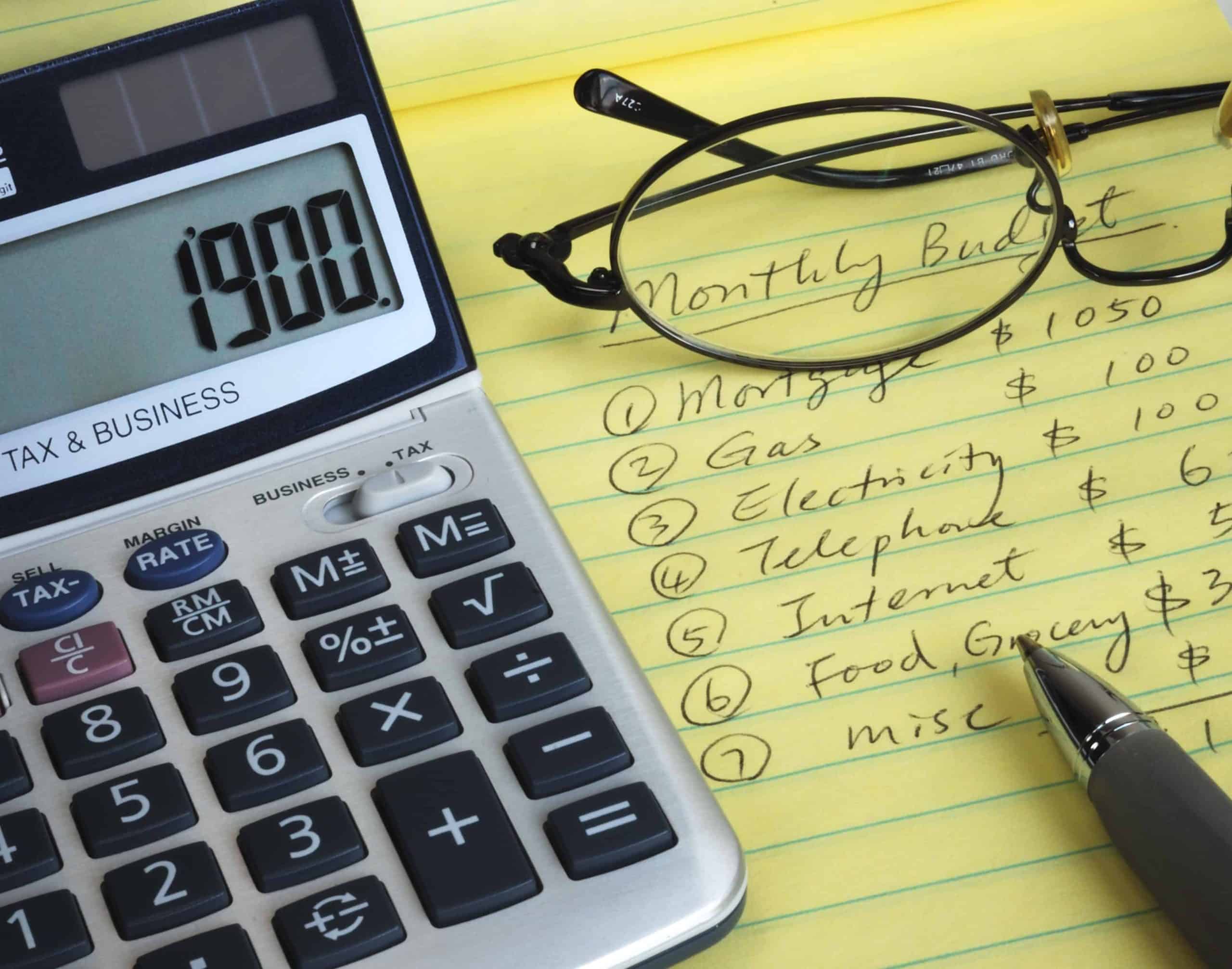8 Money Hacks to Get Your Finances Back on Track
Are you behind on bills? Did you overspend on your last vacation? Are you tired of living paycheck to paycheck? Take a hard look at your finances. We’ve all been there. In this post, I’ll share eight awesome ways to get your finances back on track!
These money hacks are super easy to implement, and will help put more money in your pocket each month!
RELATED: 10 Ridiculously Simple Financial Tips That Will Make You Rich
Some of the links in this post are affiliate links. We may receive compensation when you click on links to products at no extra charge to you. View our full disclaimer.
8 Money Hacks to Get Your Finances Back on Track
Create a Budget
The first thing you need to do when getting your finances in order is to create a budget and try your best to stick to it!
Many people who don’t have budgets believe they are limiting or too difficult to manage. However, that couldn’t be further from the truth. Telling your money where to go gives you the freedom to choose where to spend your money guilt-free.
If you enjoy eating out with friends (who doesn’t!?), you can still do that! Just make sure you don’t spend more than the dollar amount you set in your budget.
Check out my simple, step by step guide to creating a beginner’s budget here.
RELATED: How to Create a Budget that Works & How to Use a 50/20/30 Budget to Achieve Your Financial Goals
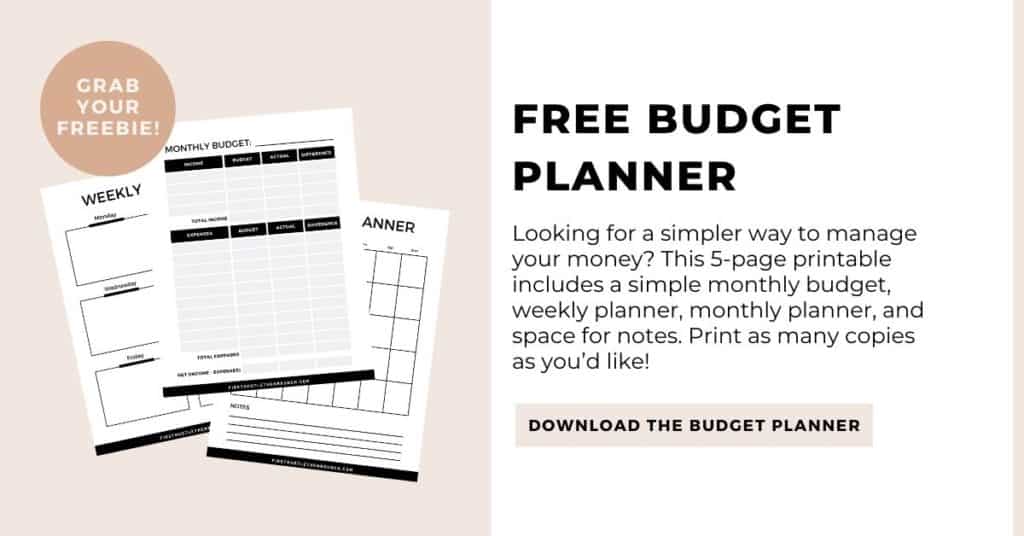
Only use cash
Studies have shown that we spend more money when we pay with a card compared to when we pay with cash. If you tend to overspend each month, it’s time to implement “The Envelope System.”
After you have created a monthly budget, grab a bunch of envelopes. On the outside of each envelope, write the budget category and the amount allotted for it that month, i.e., Groceries $200. Cash your next paycheck and sort it into the various envelopes.
When it’s time to go grocery shopping, take the envelope labeled “Groceries” with you. Pretend the other envelopes, and your debit/credit card do not exist – better yet, leave them at home! This limits you to spending only what you have distributed to the grocery envelope. When you get home, subtract the amount you spent from the starting amount and circle it. Do this each time you go shopping. Once the cash runs out, that’s it for the month!
The envelope system will keep you from overspending, and you may find that you have extra money left over at the end of the month! Whatever you do, don’t use credit!
Create a Sinking Fund
With a sinking fund, you will save a certain amount of money each month in a separate savings account to use for expected purchases later on.
For example, it’s January, and you plan to spend $600 on Christmas gifts this year. Rather than wait until November to panic about how much money you have (or don’t have) for gifts, start saving now. Each month, automatically save $50 – that’s only $25 per paycheck if you’re paid bi-weekly!
I use my sinking fund to cover my hair appointments, my dog’s grooming appointments, vehicle registration, quarterly student loan payments, and gifts. It’s such a relief not to be worried about those payments when the time comes.
Note the key difference between a sinking fund and an emergency fund. An emergency fund helps cover unexpected expenses or emergencies. Sinking funds help pay for expected costs that are not paid monthly.
Attend Free Events
I love a good time just as much as the next person. Just because I’m paying down debt doesn’t mean I should waste my youthful years away at home.
Some may disagree, but I think you can still have a lot of free fun when you’re getting your finances back on track! A quick Google search of: “Free events in [enter your city]” should provide several free evenings happy in and around your community.
Pull out your calendar and start saving details of the events that interest you. Many times, they create Facebook events so that you are notified of updates, and can also share the event with your friends!
That leads me to my next tip…
Get Your Friends and Family on Board
Because we typically only talk about the great things happening in our lives, you may not really know how your friends and family are doing financially.
They may look like they’ve got it all together and have “money to blow,” but I bet they’d be thrilled to attend a free event every once in a while!
Just the other night I was having dinner with my two of my close girlfriends. Since we all recently moved to the area, we’ve been trying a different restaurant each month. It’s a great time, as you can imagine! However, last night, we talked about how we want to start saving money. Using a quick Facebook search, we put together a list of free events and fitness classes that we plan to check out!
Trust me, free events are awesome, and just as fun (if not more) than pricier options. This is a great way to maintain your social life until you get your finances back on track (and even afterward)!!
Meal Prep
The “Food/Grocery” budget category is the hardest for me to manage each month. I love eating out! I also enjoy cooking on (rare) occasion.
However, I have found meal prepping to be incredibly beneficial to my super busy life. I typically reserve Sundays to prep my meals for the entire week. This reduces some of the pressure I feel about eating out for lunch, and also keeps me from ordering in pizza when I’m too tired to cook after work.
Meal prepping has many benefits: you’ll spend less money by not eating out throughout the week; you’ll reduce food waste because you only cook what you will eat that week; and eating healthy, nutritious meals will help you lose weight or maintain a healthy weight.
There are many online tools to help you create meals that suit your dietary needs. If you want to learn more about how to meal prep or how to use coupons, check out this free Grocery Budget Makeover Workshop!! Here are several budget-friendly meal prep options! When you’re ready to cook, these are my go-to meal prep containers!
Turn Your Trash Into Treasure
Spring is finally here, and you know what that means? It’s time for some SPRING CLEANING!! I enjoy cleaning – weird, I know – but decluttering is so refreshing! Even better, you can turn your spring cleaning into cash! Take this time to go through your home’s rooms, closets, pantries, and even the garage – gasp!
Get rid of anything you haven’t worn or used in the past year (or even less if you’re better at parting ways with your things than me). Old furniture and home decor can also be sold at this time!
Check your local area for stores that buy used goods. I have also had success with many online resources such as OfferUp, Poshmark, and Decluttr.
This month, I’m using my spring cleaning earnings to help rebuild my starter emergency fund. How will you use your extra cash!?
Do a No-Spend Challenge
Participating in a no-spend challenge is a great way to save money when you’re on a tight budget. Commit to not spending $1 in a day, then try not to spend $1 in a week. Eventually, work your way up to having an entire no-spend month!
I’ve seen varying intensities of the no-spend challenge. Some people eat only the food already in their kitchen and bike or walk to work. Others stick to a smaller grocery and gas budget while discontinuing spending on anything besides the bills. Here are 25+ things to do during a no-spend challenge!
No matter how you do it, significantly reducing your spending will allow you to boost your savings and get your finances back on track!
If you’re reading this post, you’re already headed in the right direction. If you stay disciplined, these seemingly small, simple steps will lead to impressive results!
Let me know which of these tips you plan to implement in the comments below!
